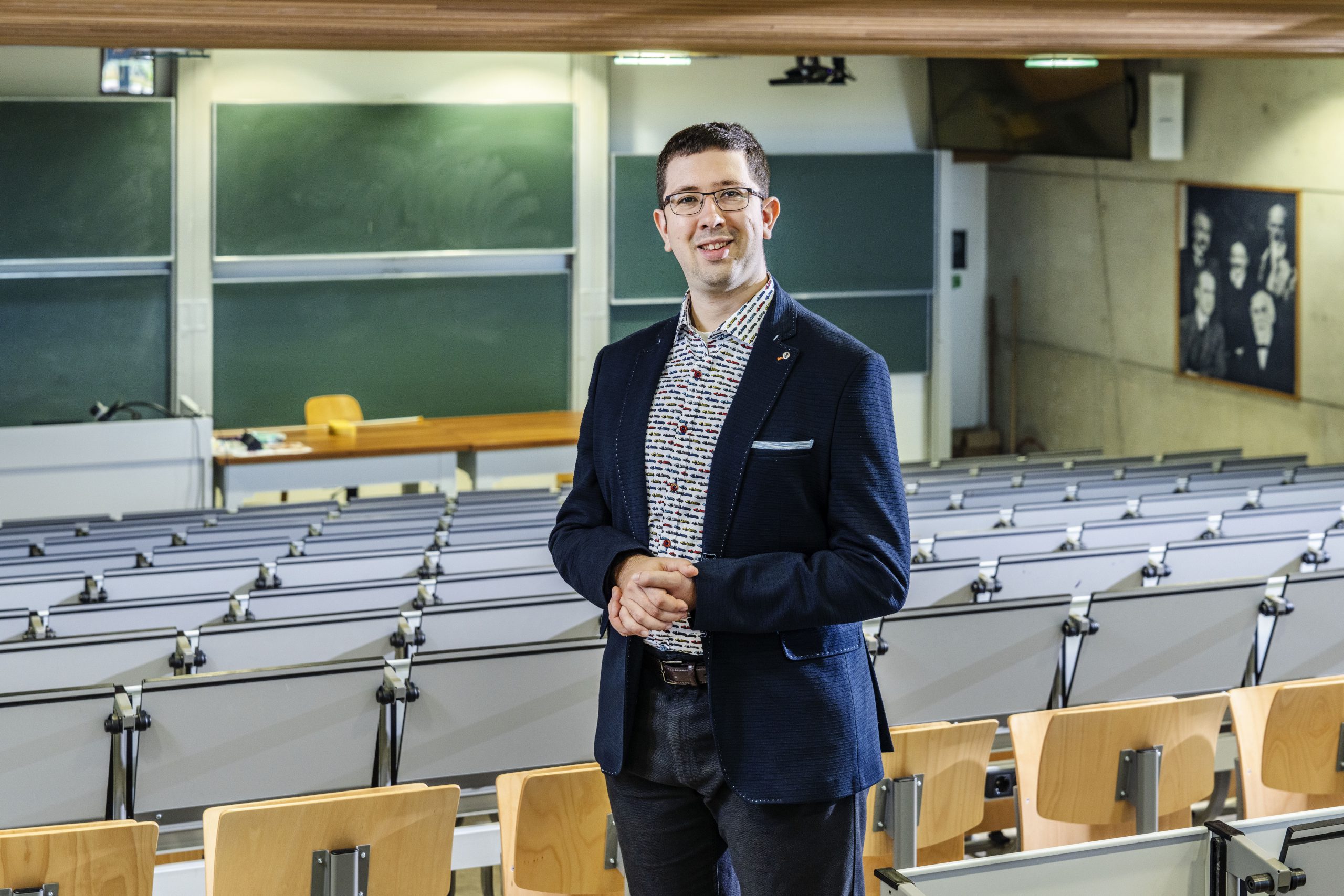Mathematician Jordi Tura i Brugués (1987), connected to the Lorentz Institute at Leiden University, has been awarded the Heineken Young Scientists Award 2022 in the field of Natural Sciences. The jury praised his pioneering contributions to the theory of quantum entanglement and nonlocality. He adapted Bell’s theorem, which is used to show entanglement of two particles, to fit large numbers of particles. An important step for the further development of the quantum computer and the quantum internet.
The Heineken Young Scientists Awards are awarded every two years to four highly promising young researchers working in the Netherlands. The winners are selected from four fields of science: Medical/Biomedical Sciences, Humanities, Natural Sciences, and Social Sciences. The Royal Netherlands Academy of Arts and Sciences is responsible for the nomination and selection process. The award includes a cash prize of EUR 10,000 and a work of art. Previous laureates in the field of Natural Sciences include Freddy Rabouw (2020) and Peter K. Bijl (2018). The award was created in 2010 by Charlene L. De Carvalho-Heineken.
About the study
Tura i Brugués has pioneered the development of quantum algorithms and mathematical methods to demonstrate quantum entanglement. He devised a way to translate Bell’s inequality theorem, which measures the nonlocality of two particles, to large numbers of particles. Thanks to his theoretical work, it has become possible for the first time to demonstrate the existence of Bell correlations in half a million rubidium atoms. Such Bell correlations imply the existence of entanglement, which is one of the quantum properties that potentially makes a quantum computer so incredibly powerful. The more particles you can entangle, the more powerful the quantum computer. Tura i Brugués’ method for measuring Bell correlations can therefore be used to understand the computing power of quantum computers. Tura i Brugués is currently working on the development of quantum algorithms, which allow him to perform calculations on quantum computers. Among other things, he is developing quantum algorithms for complex optimisation problems, certification tasks, quantum machine learning, and the unravelling and prediction of the precise development of chemical reactions. He adapts these algorithms for the quantum computers that will be available in the near future.
Jury praises translation of complex mathematics into predictions
According to the jury, Tura i Brugués serves as an example for young researchers. He shows that fundamental research into the foundations of physics can be combined with pioneering work on technological applications. Quantum computers calculate in a fundamentally different way. That is why the potential is enormous, but in order to make use of that potential, it must be managed in a completely different way. Tura i Brugués has the rare ability to translate complex mathematics into predictions that can be tested in the laboratory. For example, the method he developed on the degree of Bell correlations could now be tested on the first generation of quantum computers.
About Jordi Tura i Brugués
Jordi Tura i Brugués (Girona, 1987) studied mathematics and telecommunications engineering at the Universitat Politècnica de Catalunya in Barcelona. In 2015, he obtained his PhD with honours from the Quantum Optics Theory group of the Institut de Ciències Fotòniques (ICFO), also in Barcelona. He remained at the ICFO for another year as a postdoctoral researcher. In 2016, he moved to the Max Planck Institute of Quantum Optics in Munich for a second postdoctoral position. Since 2020, he has been a lecturer at the Lorentz Institute at Leiden University, where he is a leader of the Applied Quantum Algorithms research group. In addition to the Heineken Young Scientists Award, he has received a Google Research Scholar Award (2021) and an ERC Starting Grant (2021).
